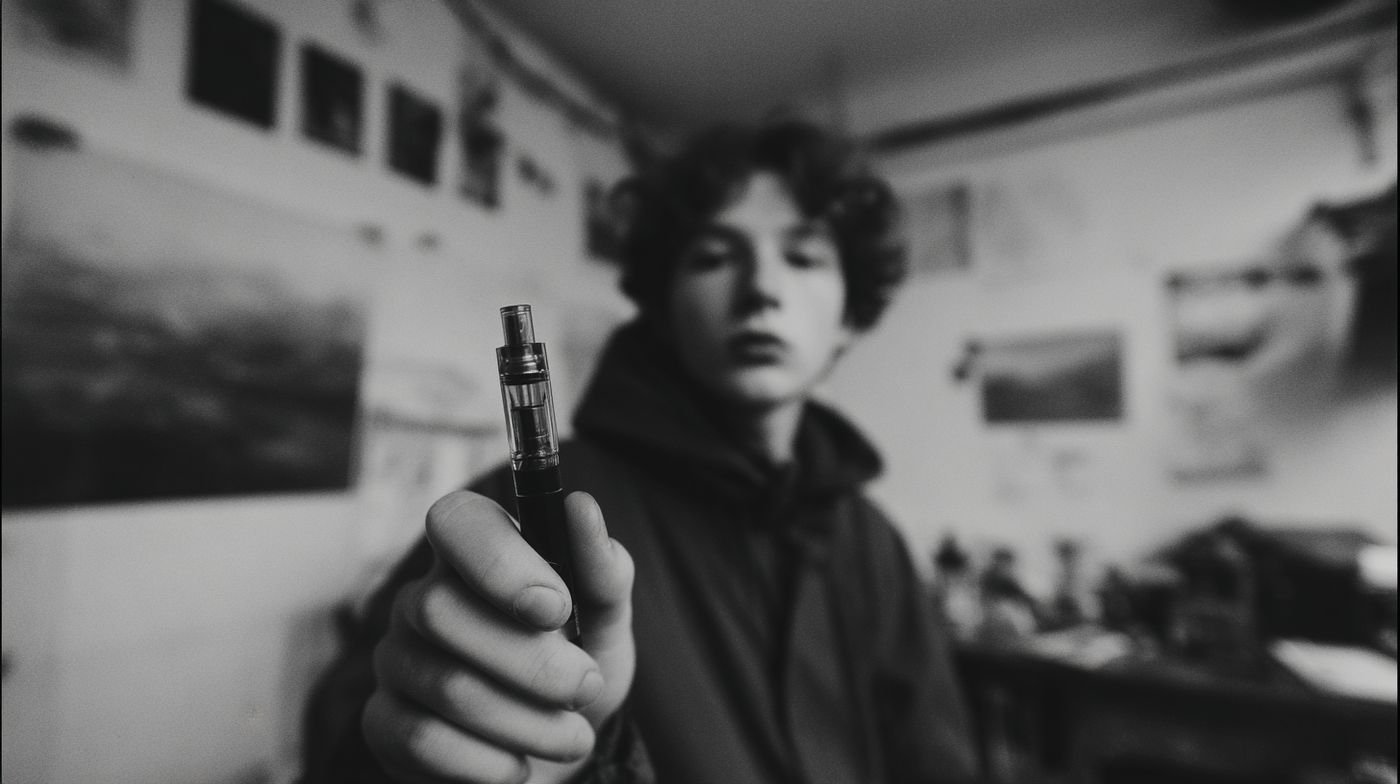This article has been clinically reviewed by Dr. Sean Barlow.
What Is Dabbing?
If you have heard someone say this before, we need to clear it up first: dabbing isn’t just “smoking weed.” It’s the chemical reduction of cannabis into a concentrate version (much stronger) that can hit 70–90% THC. That’s three to five times stronger than what people may experience smoking marijuana. A dab is essentially weed stripped of everything but its most potent psychoactive element—and then vaporized right into your bloodstream. It’s not a casual ease into THC; it’s like taking it from a firehose.
People don’t always realize what they’re stepping into with concentrates. What they are using to dab might look like a pen or a tiny gadget with a harmless glow. But inside? It is a volatile substance. What’s being inhaled is no longer the whole plant—it’s straight THC.
Is Dabibng Dangerous?
Short answer: yes.
Longer answer: it’s complex, but still yes.
Just like concentrated versions of anything (such as cleaning supplies), the more concentrated a substance, the more dramatic its effect. The effects of high doses of THC can trigger acute anxiety, panic, even psychosis, especially in younger brains or people with a predisposition or history with mental health challenges.
One hit can send your nervous system into a chaos spiral. You might feel detached from reality. You might start sweating through your shirt like you are running from someone out to get you, because your body thinks you are.
Physical Effects of Dabbing
There’s also the issue of lung damage. Not only from the ultra-hot vapor, but from the unregulated substances sometimes used in cheaper waxes—things like butane, heavy metals, or leftover solvents that are anything but medical-grade.
Think of it like this: many household cleaning products contain chemicals you’d never dream of inhaling. The same kinds of chemicals can show up in untested concentrates—and they’re just as harmful here.

What Are the Dangers?
There’s a reason ER visits involving cannabis have spiked in states with legal weed—because concentrates take people by surprise.
Our brains are sensitive. When you dab, THC floods the same system responsible for threat detection and emotional balance. When that system is overstimulated, it doesn’t just blink. It freaks out a little.
Here’s what can happen when dabbing becomes a regular habit:
-
Increased tolerance leading to more frequent and higher doses
-
Panic attacks and paranoia, especially in public
-
Short-term memory issues (Where are my keys? What day is it? Why am I crying at a Home Depot commercial?)
-
Sleep disturbances and vivid, often disturbing dreams
-
Impaired judgment and risky decision-making
-
Social withdrawal and motivation loss—classic dopamine depletion
Symptoms of a Bad Dab Reaction
A bad dab reaction is more than someone who gets “too high.” It can feel like your body has been hijacked. Your hands might tingle or go numb. Your heart might pound so hard you wonder if you need an ambulance.
You might feel like you’re outside your body or trapped in it at the same time. Some people hallucinate. Some dissociate. And afterward, you’re not left with peace—you’re left with a kind of feeling of unease.
If someone is breathing rapidly, disoriented, talking nonsense, or stuck in a loop of panic after dabbing, that’s not normal. It’s not “part of the high.” That’s your brain telling you that you are having a bad dab reaction.
Signs Someone You Know Has Been Dabbing
Unlike traditional weed, dabs don’t always leave behind the tell-tale stink in the air. That’s why it can fly under the radar for a while. But if you think someone might be dabbing, you might notice:
-
An odd, chemical or burnt plastic smell lingering in rooms or clothing
-
Glass or metal tools with residue (nails, torches, cartridges)
-
Sudden mood shifts, anxiety, or avoidance
-
Persistent cough, wheezing, or sore throat
-
Increased secrecy or changes in friend groups
-
Dips in performance, whether academic, athletic, or social
Can You Get Addicted to THC Concentrates?
THC might not hook everyone the way nicotine or heroin does, but when it’s in concentrated form, its addictive potential increases rapidly. Why? Because of the dopamine response.
High-potency THC triggers a massive spike in the brain’s reward system, followed by a depletion. And the brain—like all of us—likes to feel good again. So it chases that spike.
Should Someone Go to Rehab for THC Addiction?
If someone is dabbing every day, can’t function without it, or keeps using despite increasingly obvious consequences—yes. Just like any substance, these are the signs of addiction and a life that is being taken over by a drug.
Rehab isn’t about punishment. It’s about recalibration. It’s about giving the nervous system a reset. For some, it means a detox period with professional support. For others, it means addressing the underlying anxiety, trauma, or depression that dabbing was anesthetizing in the first place.
Getting Marijuana Addiction Treatment in Palm Springs
You’re not alone. And you’re not broken. The culture sold you something that was supposed to help with wellness. And it turned out to be something that created a formidable addiction. But there’s help. Real help.
From people who understand how these chemicals work in the brain and how healing can take place. If you or someone you love is addicted to dabbing, call us at SolutionPoint. Our team can walk you through your options and help you see all your options. Call now: 833-773-3869.
This article has been clinically reviewed by Dr. Sean Barlow.




